Inuit graphic artist and writer Alootook Ipellie (1951–2007) was a prolific creator of political cartoons, serial comic strips (such as “Ice Box” and “Nuna and Vut”), larger drawings, prose, and poetry. Born at Nuvuqquq on Baffin Island and relocating to Ottawa as a young man, Ipellie was a prominent activist and voice in social, cultural, and political issues concerning Inuit Nunangat (the homeland of the Inuit in Canada). Self-Portrait: Inverse Ten Commandments is featured in his book Arctic Dreams and Nightmares, 1993. Comprising twenty stories about the mythological world of the Inuit accompanied by pen ink drawings, it is the first-ever book of collected short fiction by an Inuit author.
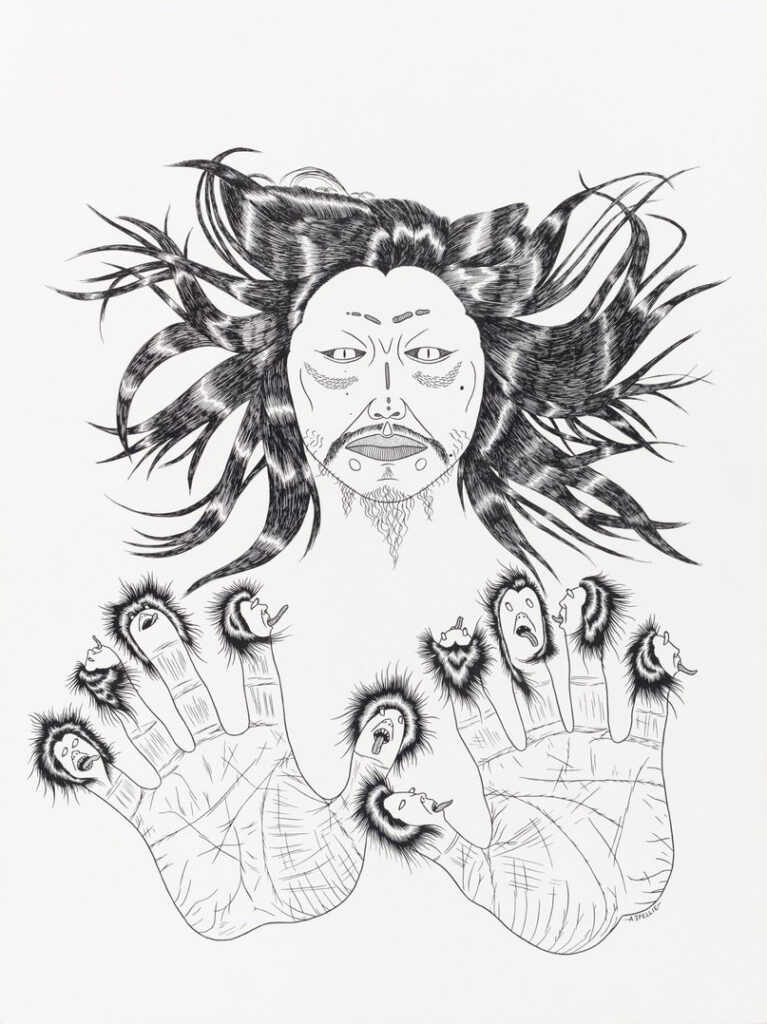
Ink on illustration board, private collection. Photograph by Justin Wonnacott, courtesy of Carleton University Art Gallery. Reproduced with permission.
In the book, the shaman narrator encounters this frightening vision of himself—which bears a strong resemblance to Ipellie—as a devilish figure with inverted eyes, tentacle-like black hair, and tiny screaming faces on his fingertips. The disturbing scene marks his arrival at Hell’s Garden of Nede (an anagram of Eden), and the grotesque faces represent the inverse Ten Commandments, crying “Thou Shalt” instead of “Thou Shalt Not.” Discovering the Christian belief that good-natured people are sent to Heaven to be false, the shaman destroys the monstrous mirage with a knee to the groin. According to scholar Kimberley McMahon-Coleman, through this empowering act, the shaman “has saved himself without the agency of the Church or its ministry.” Foregrounding Inuit spirituality and autonomy, this vivid story is part of Ipellie’s broader critique of the negative impact of Christianity on Inuit culture in Arctic Dreams and Nightmares.
This artwork was featured in the ACI newsletter “Terrible Beauties: Haunting Canadian Art” from October 30, 2020. Read the full newsletter here, or sign up here to receive our weekly Canadian art highlights.
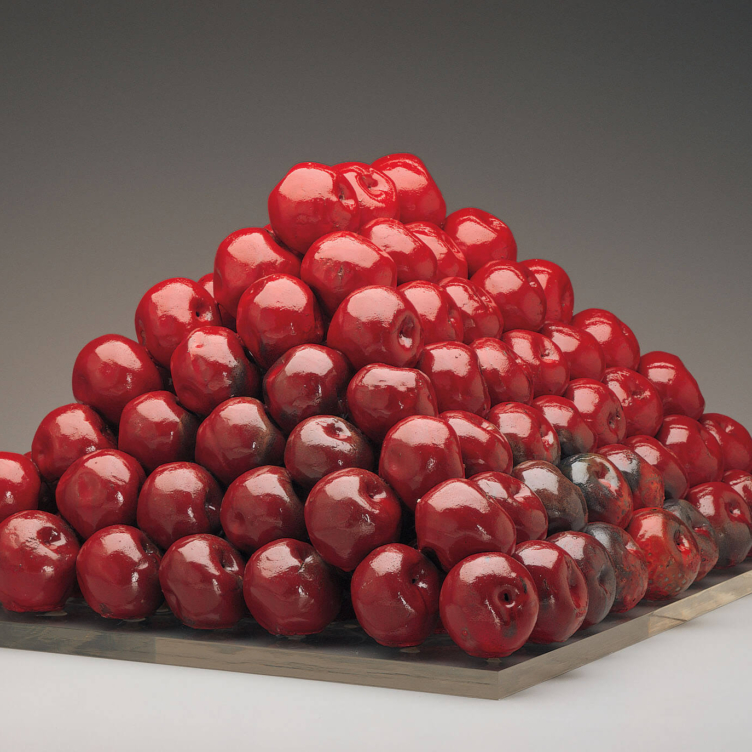 Pyramid Scheme
Pyramid Scheme
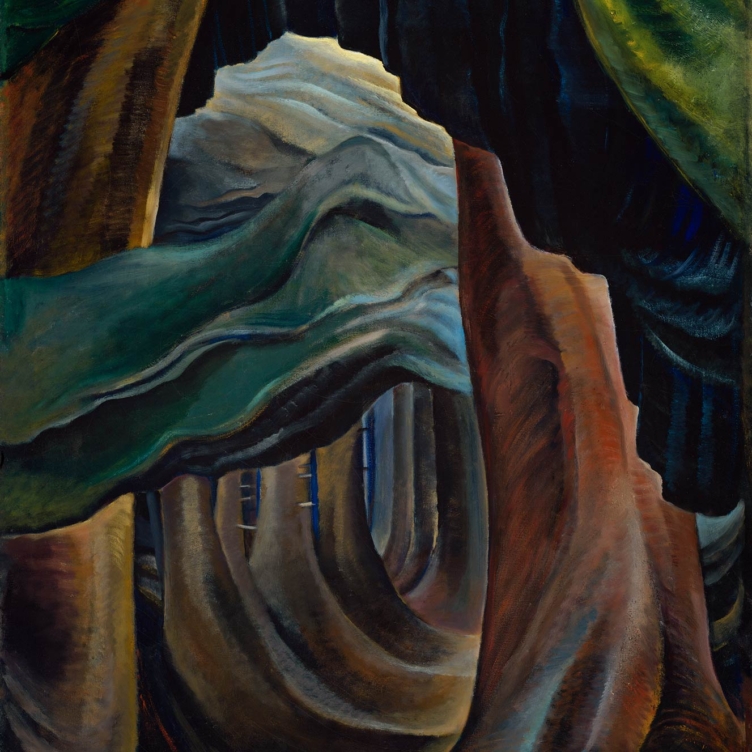 Transportive Trunks
Transportive Trunks
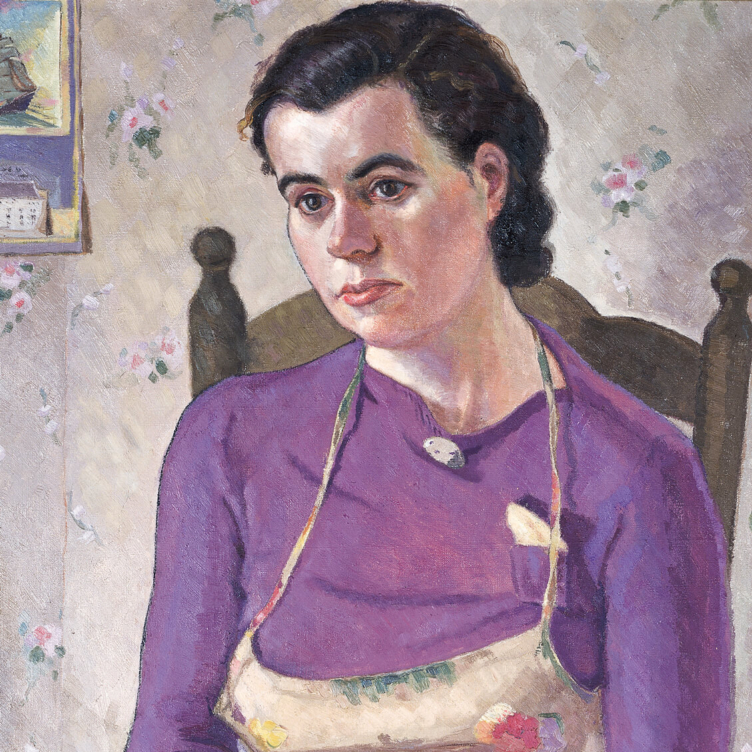 The Military Mate
The Military Mate
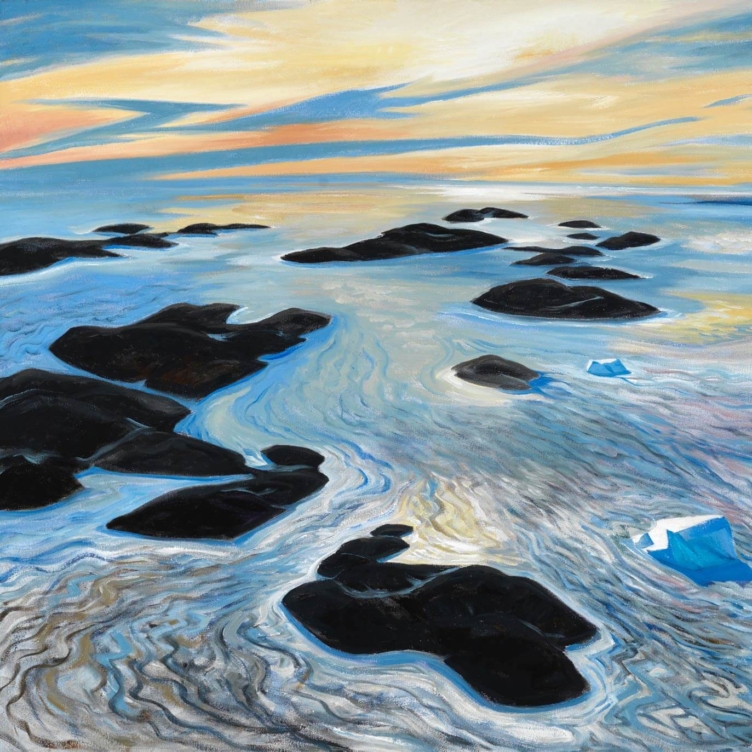 Looking Up on the World
Looking Up on the World
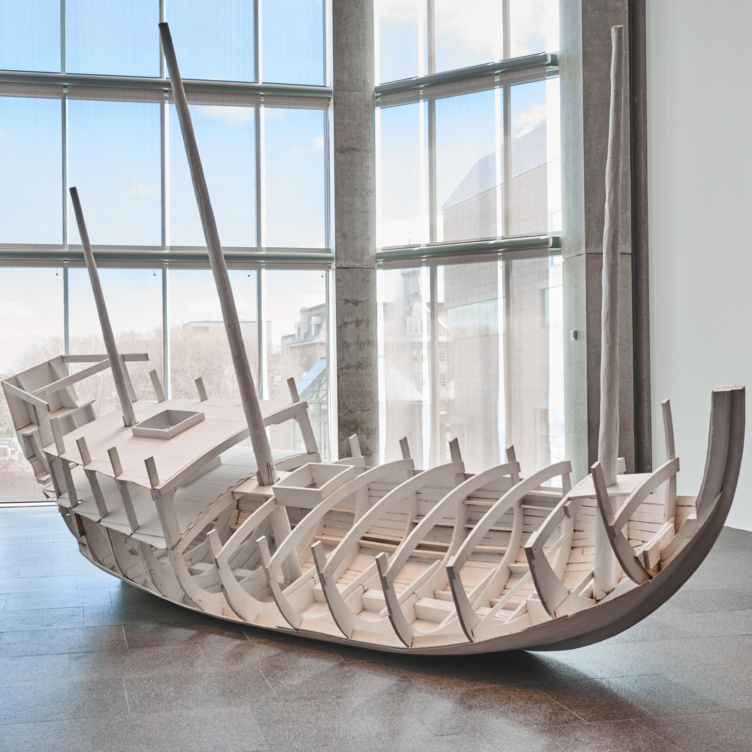 Vessel of Despair
Vessel of Despair
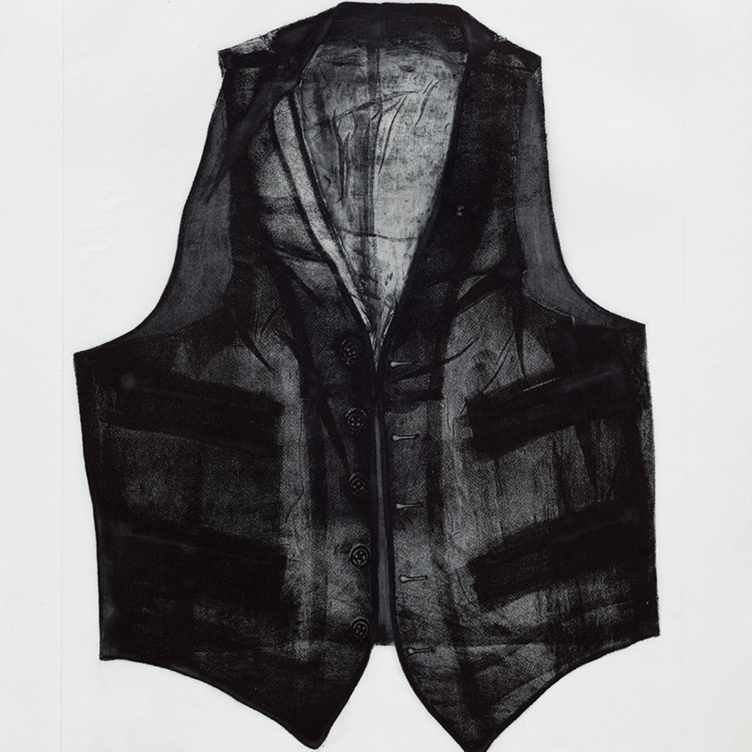 Layers of Meaning
Layers of Meaning
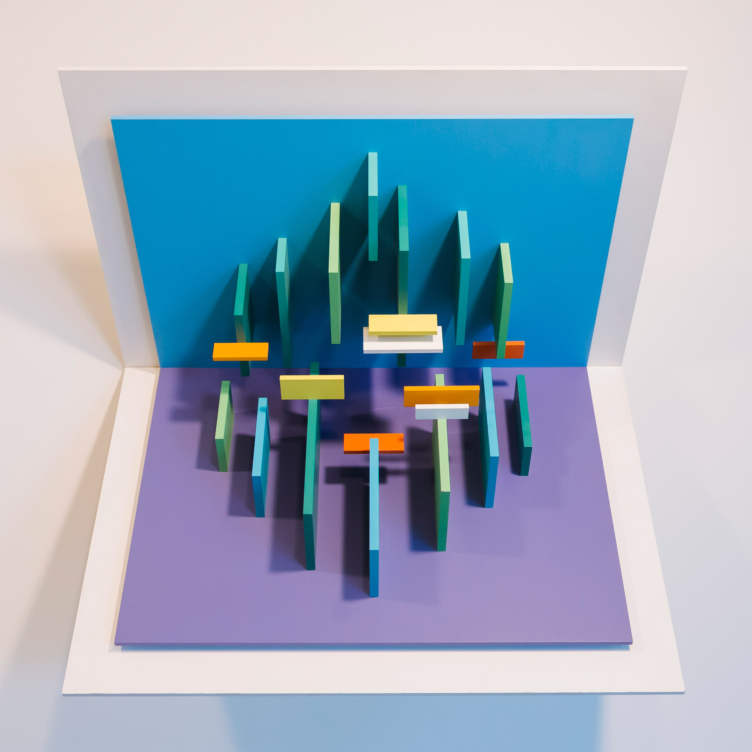 In Parallel to Nature
In Parallel to Nature
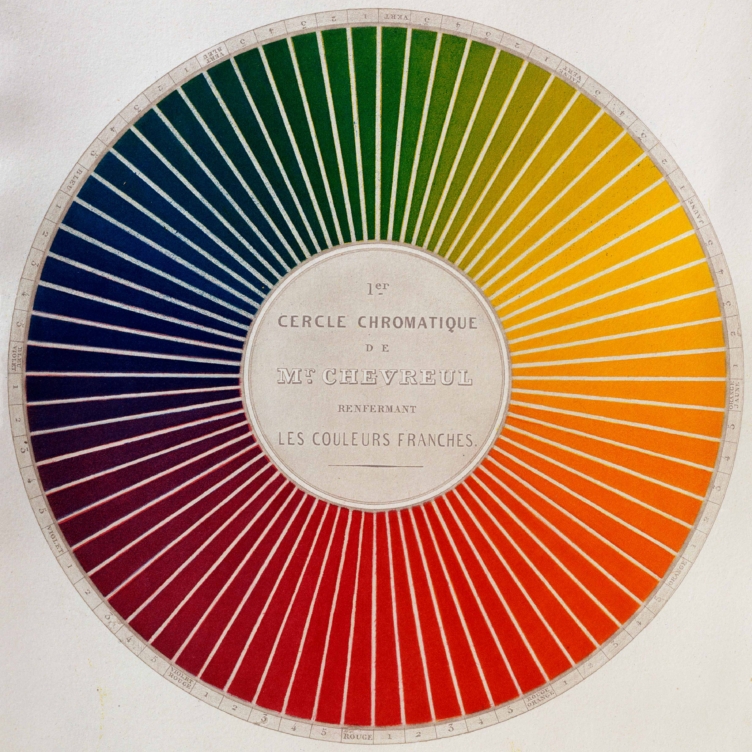 Wheel of Fortune
Wheel of Fortune
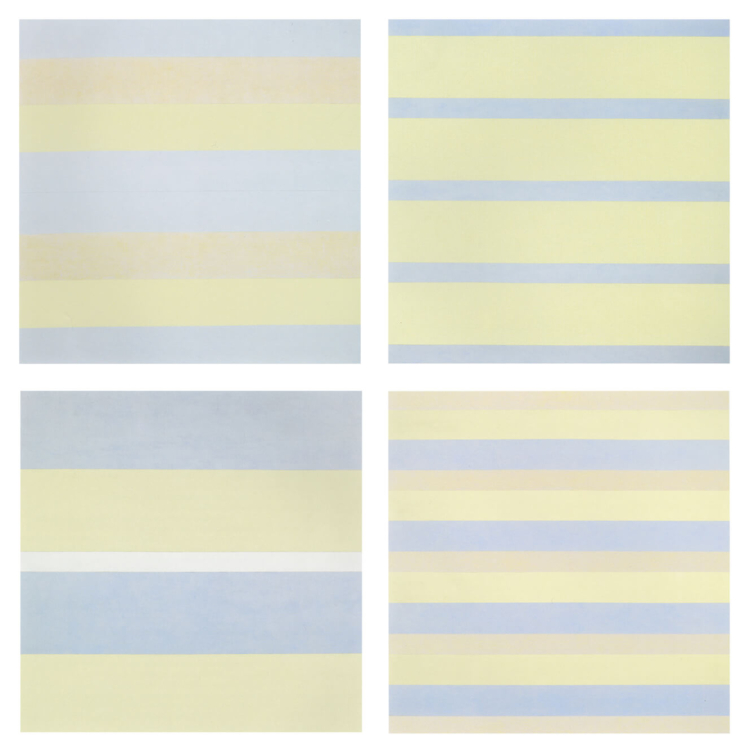 Paintings after emotional states
Paintings after emotional states
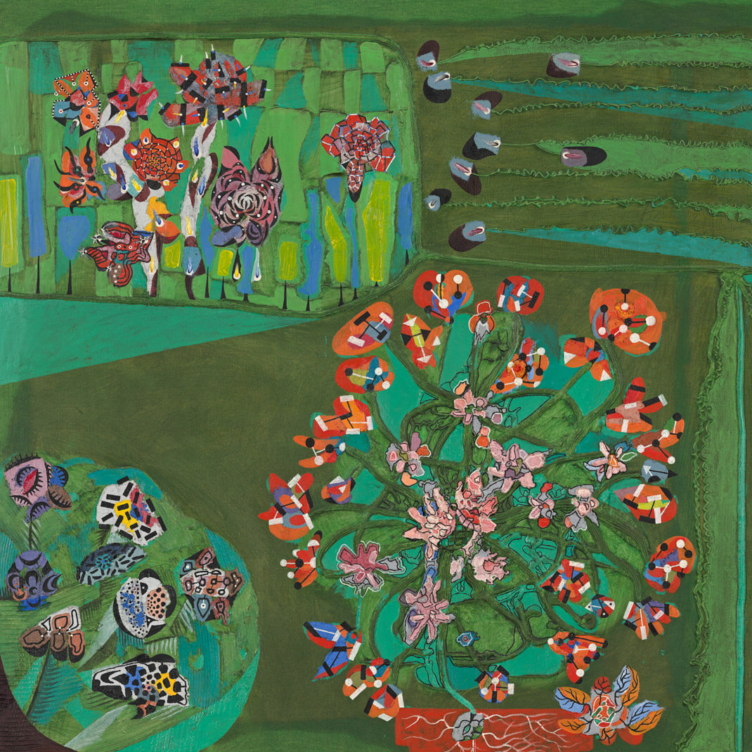 Garden of Delight
Garden of Delight
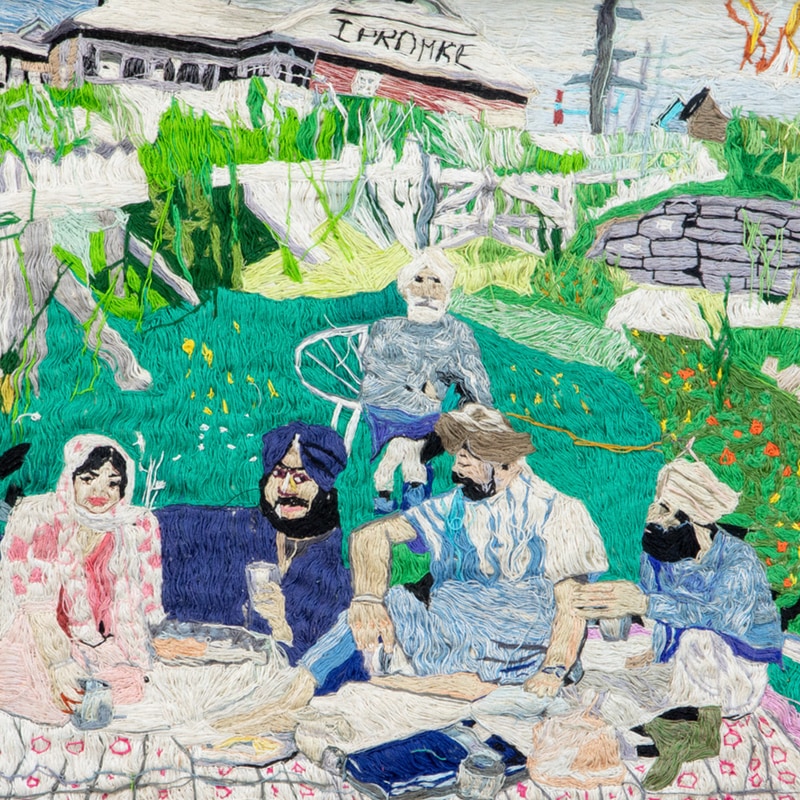 Stitching the Archives
Stitching the Archives
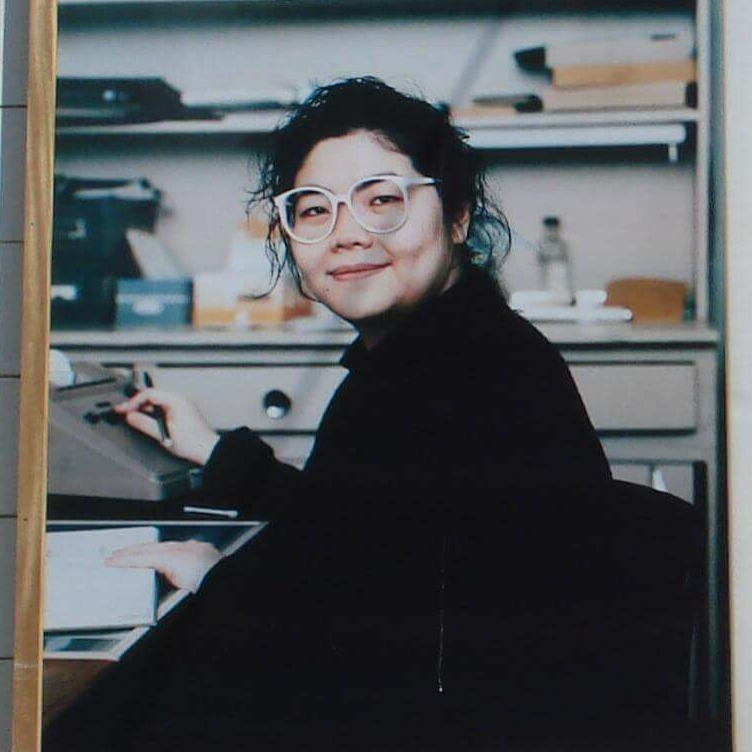 A Working-Class Hero
A Working-Class Hero
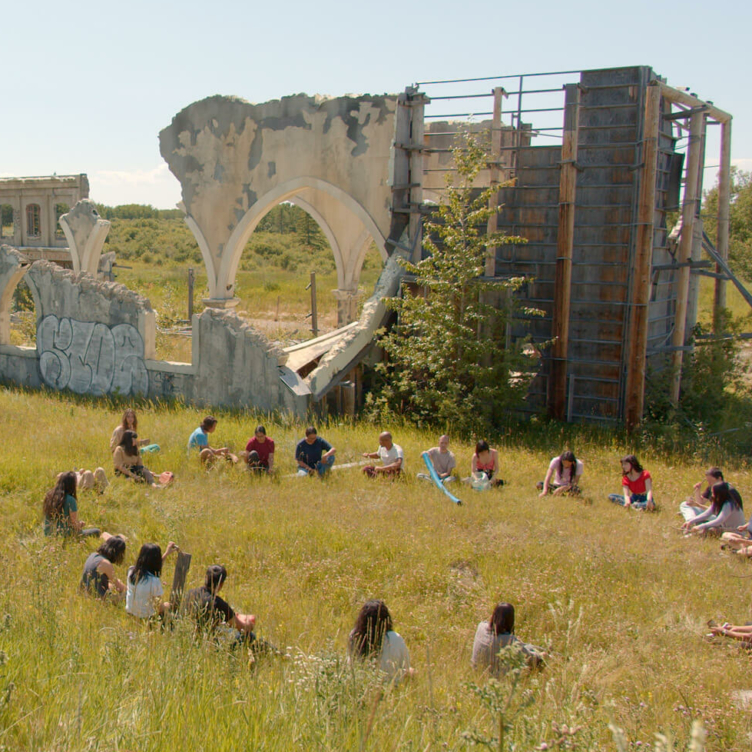 Imagining Entangled Futures
Imagining Entangled Futures
 Bridging Far and Near
Bridging Far and Near
 Soft Power
Soft Power
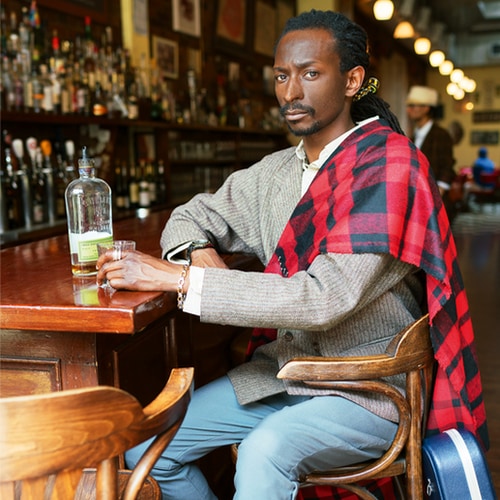 Imagining Emancipation
Imagining Emancipation
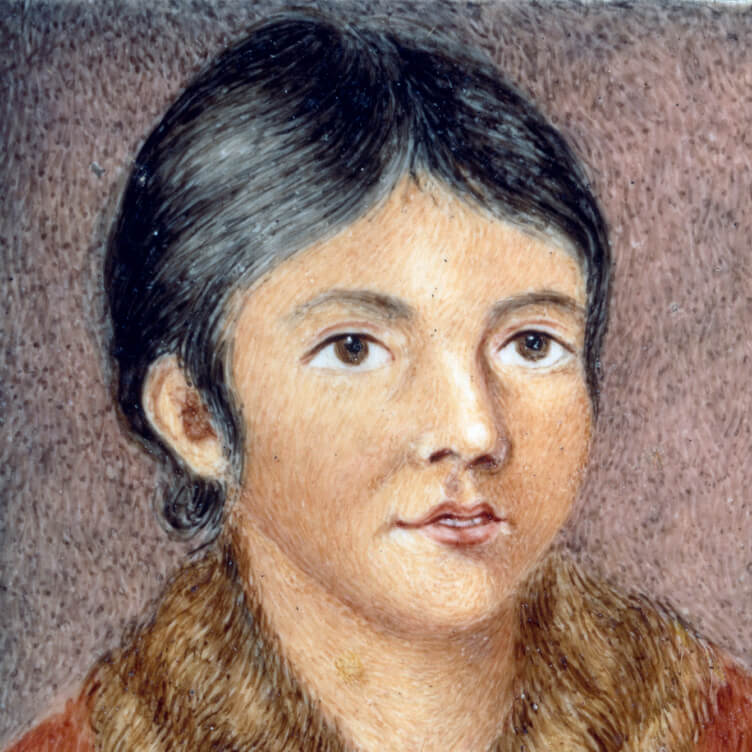 A Priceless Portrait
A Priceless Portrait
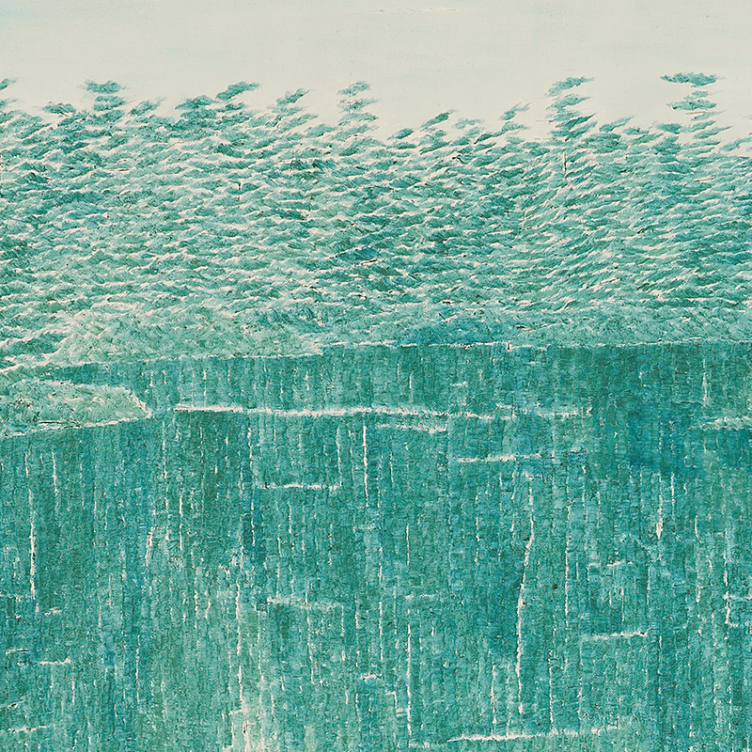 Meditation in Monochrome
Meditation in Monochrome
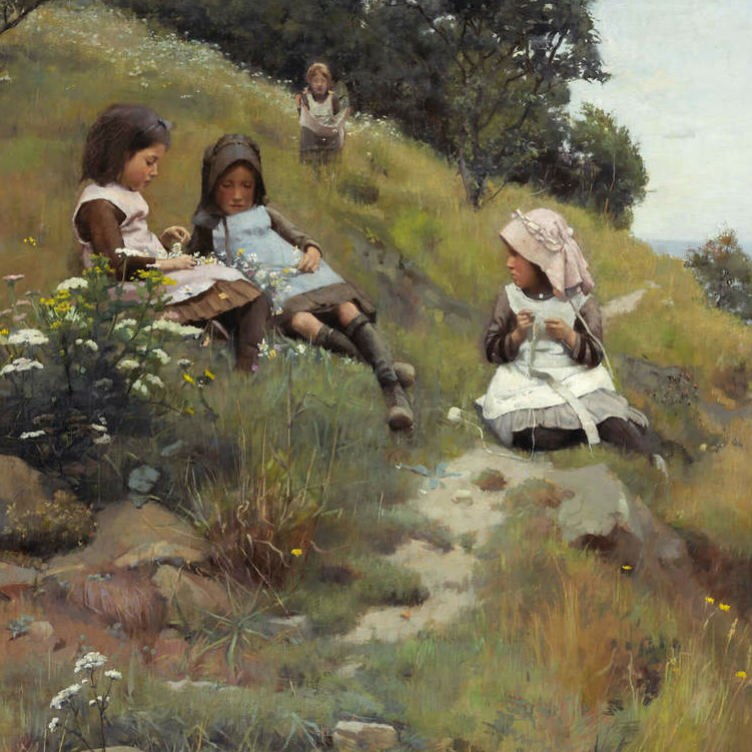 Making His Mark
Making His Mark
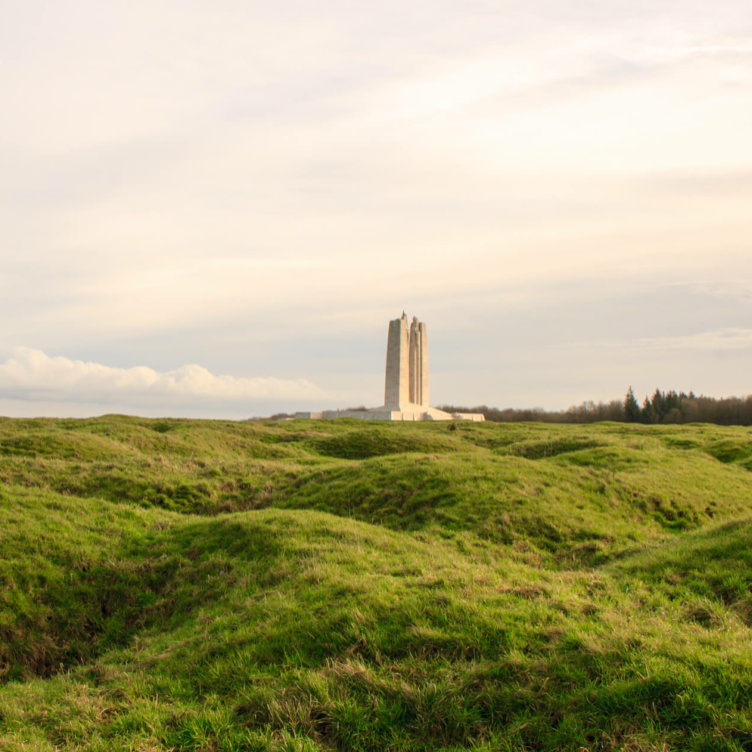 Honour and Sacrifice
Honour and Sacrifice